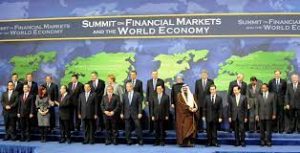 It is really not possible to begin this Substack Post without a quick glance at the first US Presidential debate of 2024. It was ugly. It was a tough night, especially for President Biden but I will let the political pundits to have their say.
It is really not possible to begin this Substack Post without a quick glance at the first US Presidential debate of 2024. It was ugly. It was a tough night, especially for President Biden but I will let the political pundits to have their say.
Now to the subject of this week’s Substack Post at Alan’s Newsletter – a focus on Middle Power Diplomacy (MPD) and the capacity of Middle Powers to drive global governance activities. We start with an examination first on multilateralism. There is a strong logic to this starting point given we are beginning by targeting the institutional apex of the international multilateral system – the UN and its agencies. This introduction is also understandable given that the UN will, this September, complete a UN summit cycle which I have referenced in past Substack Posts. This UN summit cycle commenced in 2023 with the SDG (Sustainable Development Goals) Summit and it will complete with the critical Summit of the Future (SoTF) this September in New York with the finalization and issuing of the Pact for the Future. In preparation for the UNGA 79th edition, and its opening gathering of Heads of State and Government for the SoTF, and as described by IISD, the UNGA has elected its newest President:
The UN General Assembly (UNGA) has elected, by acclamation, Philemon Yang, former Prime Minister of Cameroon, to serve as President of its 79th session. His tenure will be guided by the theme, ‘Unity in diversity, for the advancement of peace, sustainable development and human dignity for everyone everywhere.’
And with the usual optimism and urgency the new President declared:
I am convinced that through dialogue, through consensus, talking together and looking to the future together, we can solve problems,” Yang said speaking to journalists following the elections.
Yang underscored the continuing multilateral wish:
Outlining the thrust of his Presidency in his vision and mission statement, Yang describes the UNGA as the highest, most representative deliberative body at the global level, which serves as “the lone forum where, based on sovereign equality, States in their diverse opinions meet to jointly seek solutions” through the free expression of diverse convictions, opinions, interests, and approaches.
To preserve peace, promote sustainable development and protect the planet,” Yang underscores, “the international community should ensure that the objectives jointly set by Member States… are achieved.” According to his statement, the need to fast-track the measures to be taken by the UNGA to ensure the effective implementation of mutual commitments will be one of Yang’s priorities.
The collective effort is heartfelt without question but after the last several decades it has to be accepted as wishful thinking, nothing more. I don’t know how else to describe the effectiveness of the UN.
If formal institutional multilateral action has faltered in the growing international disorder: the rising tensions between the two great powers US and China, and recourse to aggression in the Russian war on Ukraine, and the Hamas-Israel Gaza war, then where can the global order firm up international stability and advance collective efforts? Where can the global order save the planet and improve collective efforts in critical areas of global finance, cybersecurity and AI just to mention three critical subjects?
In our discussions and work at the China-West Dialogue (CWD) we have examined MPD with growing positive reflection and a nod to Middle Power action in the face of weakened multilateral progress. The CWD lead Co-Chair, Colin Bradford has pivoted to an examination of MPD. He does this in a recent article, “Toward a New Era in Global Relations: The Potential of Middle Power Diplomacy” in the 2024 Global Solutions Summit edition of Global Solutions Journal. Now almost without exception raising the MPD configuration immediately encourages a discussion over what is, and what is not, a Middle Power. We found that out in one of our recent CWD gatherings. As fun as that discussion can be there is no real conclusion to it and I would note that Colin has avoided that seemingly inevitable discussion by targeting the G20. As Colin points out, the G20 consists of the following:
The 9 EMPs [emerging market powers] along with the 9 AIC [advanced industrial countries] MPs constitute a significant and diverse number of Middle Powers that have the potential to change the global landscape, if and as they choose to exercise global leadership in ways that cut across traditional groups, incorporate contradictory viewpoints and focus hard on practical policy issues and avoid ideological polemics and geopolitical theatrics.
From the start, then, Colin turns his MPD focus on the role of those Middle Powers in the G20 and more particularly the series of immediate G20 presidencies beginning with Indonesia in 2022, followed in 2023 by India, Brazil in 2024, and South Africa in 2025. As he writes:
The argument in this paper is that, as a result, 2024 could be a year of opportunity for advancing global governance in addressing global challenges by capitalizing on latent, underlying global political dynamics to tee up a new era in which global governance can advance, even as systemic competition continues between the US, China, and Europe. … The Brazilian and South African G20 presidencies during 2024 and 2025, with the US to follow in 2026, could become pivotal focal points for the transition to a new era in global relations in which middle-power diplomacy demonstrates the feasibility of advancing humanity’s quest for systemic sustainability, despite the necessary acceptance of geopolitical tensions as a reality.
What Colin then suggests is:
Middle Powers exist today and have agency and influence precisely because they are:
• Independently concerned with global threats and seek to play a role in addressing them rather than seeking a prominent role in international relations only as a projection of national strength and identity;
• Capable of self-interested contributions to global decision-making characterized by diversity of perspectives, competitive behaviors, and shifting coalitions of consensus rather than fixed allegiances based on normative values; and
• Basing their actions and behaviors in the international arena on national interests and pragmatic articulation rather than values which have resulted in ideological differences and confrontational tensions.”
And as he then concludes:
As these brief examples suggest, there could be a new global order based on secular interests, non-ideological formulations, and multiple sources of global leadership which interactively generate composite outcomes embodying contradictory but valid perspectives from different vantage points that move the world forward to addressing systemic global challenges in significant ways. This shift in the global political dynamic toward pluralism driven by middle power diplomacy does not inevitably lead to “a new global disorder”, but rather could become a more inclusive, integrated network of significant countries to drive global solutions, defining a new global order.
Middle power diplomacy is based on listening, learning, brokering, give and- get bargaining, inclusion, embracing diversity, being as comfortable with “difference” as with “like-mindedness,” understanding that “shifting coalitions of consensus” is better for global governance than fixed alliances and blocs, and adjusting pre-positioning by being open to enabling unexpected insights and different ways of seeing issues and opportunities to shift perceptions and change positions.
So Colin hones in on ‘pluralism’ and the impact of MIddle Power ‘coalitions of the willing’ in advancing global governance policies even in the face of geopolitical tensions. The diverse collective effort, it is presumed, can advance global governance policy.
This line of reasoning is underlined by Bob Carr and Gareth Evans, both former foreign ministers of Australia in an article titled, “Detente: Towards a balance of power between the USA and China”, identified by Colin and focused on Australian action in a competitive geopolitical environment. As these two former foreign ministers see it:
Lasting peace is always best achieved with others, not against them. Of course we have to prepare for worst-case scenarios, but it is in Australia’s interests to bring diplomacy back to centre stage, resist policies of containment and confrontation of China, and promote a political accord between the United States and China that could help ease tensions in the South China Sea and over Taiwan and the Korean peninsula.
Here then a further nuance of Middle Power action targeting Australia as an Indo-Pacific actor. So it appears that there is a strong favoring of Middle Power action. It is a starting point but more needs to be fleshed out. While we can acknowledge pluralism and the construction of ‘coalitions of the willing’, where have we seen MPD in action especially in the face of great power interests that may not accord with the Middle Power goals. When does the dynamic of Middle Powers action draw together a coalition of the willing that ‘drives global solutions’? How does this dynamic gather and then advance policy? We need more on the mechanics of MPD.
More on that to come.
Image Credit: Wikipedia

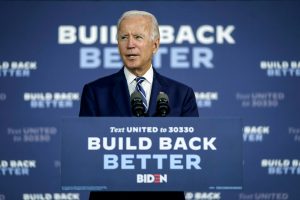

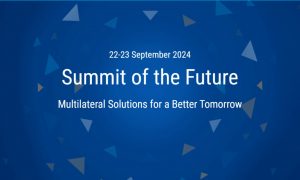 So, we are closing in on the consequential “
So, we are closing in on the consequential “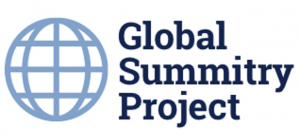 “Advancing global governance and human security for a better future”: A Symposium hosted by the Center for China and Globalization (CCG), America-China Public Affairs Institute (ACPAI) and the China-West Dialogue (CWD)
“Advancing global governance and human security for a better future”: A Symposium hosted by the Center for China and Globalization (CCG), America-China Public Affairs Institute (ACPAI) and the China-West Dialogue (CWD) 
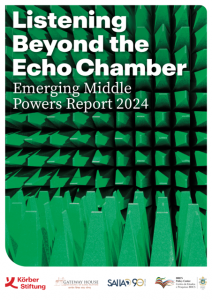
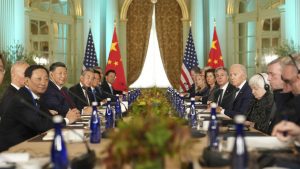 My colleague, Michael Swaine, now a Senior Research Fellow at the Quincy Institute for Responsible Statecraft, has produced two very insightful pieces on US-China relations. The longer piece can be found as a
My colleague, Michael Swaine, now a Senior Research Fellow at the Quincy Institute for Responsible Statecraft, has produced two very insightful pieces on US-China relations. The longer piece can be found as a 